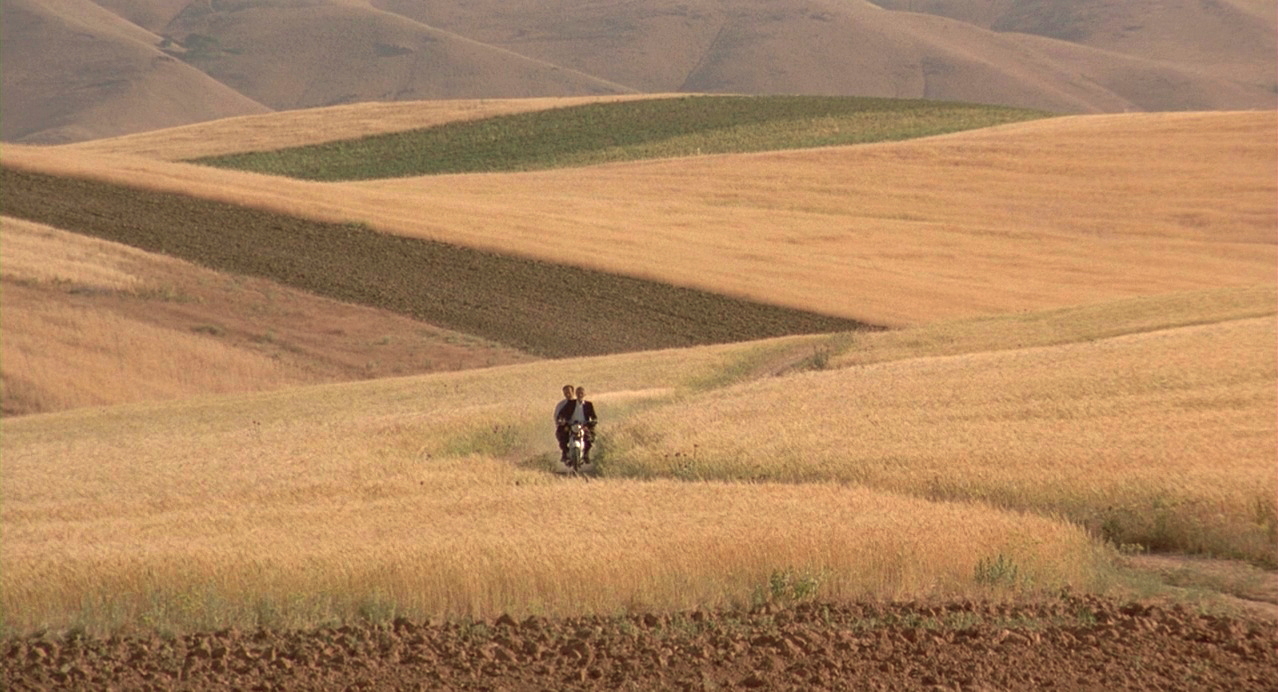Review: The Wind Will Carry Us (1999)
The Wind Will Carry Us follows Behzad (Behzad Dorani), a man who arrives in a Kurdish village 450 miles from Tehran along with three unseen companions to observe an old woman’s death vigil. While waiting for the woman to die, Behzad wanders about the village, befriending a neighbourhood boy and enjoying the local produce, all the while communicating with a mysterious individual from the city over cellphone. Behzad’s real purpose in the village is initially unclear, but the longer he stays there, the more he finds himself drawn into the simple lives of the people around him and frustrated with his own motivations.
Abbas Kiarostami is not a director who caters to viewers. His films are complex—dense even. Character motivations are kept secret. Exposition is avoided. Any viewer approaching The Wind Will Carry Us expecting a conventional narrative with subplots, rising action, and climactic revelations will be frustrated. But these viewers would be expecting something Kiarostami has no interest in delivering. Iranian cinema plays by its own rules—and even by Iranian standards Kiarostami is a maverick.
But patients viewers will be greatly rewarded with The Wind Will Carry Us. For a film with such complex themes, it’s deceptively simple. Kiarostami’s framing is never ornate or elaborate. The camera is mostly stationary. Kiarostami patiently observes villagers making bread or an apple rolling down a staircase and refuses to comment on theses images through framing, editing, or dialogue. For Kiarostami, the fact that he is filming these actions in the first place is enough of a statement. It’s important to know that the lead actor, Behzad Dorani, is the only professional in the cast. This means that the making of the film resembled the narrative of the film: an outsider (Kiarostami in reality, Behzad in the film) entering a remote ethnic village and manipulating their daily routines for the sake of art.
Iranian cinema is famous for blending documentary and fiction. Here, Kiarostami makes the tension between reality and film the key to understanding the character and the film. In actuality, Behzad is there to document the village’s rituals for the sake of art. He’s lying to the villagers. His wanderings and his growing agitations are a result of guilt. He wants the old woman to die so he can get his story and leave, but that desire leaves him uneasy. Since Behzad is a stand-in for Kiarostami, the entire film is an investigation of the filmmaker’s self-doubt. This theme might not be readily apparent from the get-go, but it’s a revelation that makes the entire film—which is quiet and beautiful even without this thematic layer—even richer.
You don’t need to be a philosopher or be an expert in Iranian cinema to appreciate The Wind Will Carry Us. You just need patience and a mind willing to ponder profound questions with no surety of an answer.
9 out of 10
The Wind Will Carry Us (1999, Iran)
Written and directed by Abbas Kiarostami; starring Behzad Dorani.
This review was originally published at the now-defunct Toronto Film Scene.
